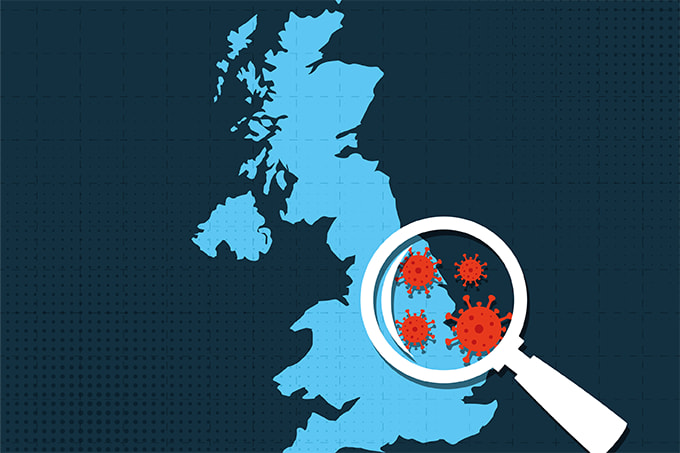We asked pathologists and laboratory medicine professionals to tell us how their professional and personal lives have changed during the COVID-19 pandemic.


Morayma Reyes Gil, Director, Clinical Hematology and Coagulation Laboratories, Montefiore Einstein Department of Pathology and Associate Professor of Pathology, Albert Einstein College of Medicine; and Mohammad Barouqa, Pathology Resident PGY-4, Anatomic and Clinical Pathology, Montefiore Einstein Department of Pathology, Montefiore Medicine, Bronx, New York, USA
Starting in January, we followed different countries’ reports about the COVID-19 outbreak with great caution – until March 1, when the first case was reported in Manhattan. That’s when we realized that we were a few days away from seeing the first case in our own hospital. Little did we know that New York City was about to become the early epicenter of the pandemic in the USA – and that the Bronx would become “the epicenter of the epicenter.”
When the first case was detected at Montefiore, we faced a challenge unlike any we had experienced before. Our first concern was to educate all laboratory personnel about COVID-19 symptoms and protection. At the same time, we started working on new workflows, testing methodologies, and backup plans to maintain the continuity of our operations – all of which required tremendous effort and coordination from everyone in the department.
By mid-March, our hematology and coagulation labs had started receiving COVID-19 positive specimens for patients presenting with unusual coagulopathies. Immediately, we began to investigate these abnormalities, especially in patients presenting with unusual changes and findings in our assays. These investigations could not have been achieved without the help of our colleagues in hematology, oncology, and transfusion medicine. (In particular, James Szymanski – assistant director of transfusion services – provided invaluable data analysis and mining.) Next, a small task force of residents, fellows, and attendings initiated several research studies to interpret data from patients during the pandemic and adjust anticoagulation therapy for COVID-19 patients. These collaborative efforts resulted in a number of research articles, currently under peer review, on the markers of coagulation. In addition, the help provided by our surgical pathology colleagues played a pivotal role in our ability to maintain service continuity, especially with the increased number of admissions for COVID-19 patients.
Being at the epicenter of a pandemic was stressful and intimidating for everyone involved in clinical pathology. We had to focus on our work for long hours while simultaneously dealing with worries about ourselves and our families. As difficult as this was, our sense of camaraderie was at its highest – and we learned that our strength does not come from our numbers, but from each person’s power and dedication.
Over the past five months, we’ve witnessed firsthand how solidarity and teamwork can save patients’ lives. We’ve also learned to appreciate the contributions of every single person in the lab – not least those of our unsung heroes, the laboratory supervisors and technicians.
We’ve learned that the power of healing is not bound to a particular specialty; rather, it is a gift that comes from the most human part of us. With the lessons we’ve learned from this pandemic, we hope to continue serving and protecting the diverse population of our patients in the Bronx.

Elizabeth Neyens, American Board-Certified Toxicologist and Veterinary Pathologist, Elizabethtoxpath Inc., Brussels, Belgium and Vancouver, British Columbia, Canada
I still remember my reluctance in February to book two business trips – one to Montreal and another to Washington, DC, where I was invited to speak about regulatory guidelines in digital pathology. Finally, I booked both – but Europe’s full lockdown in mid-March meant that one had to be canceled.
For several years, I have acted as an independent consultant delivering worldwide, customized translational drug development expertise. The pandemic prompted a major shift in my professional network, but I wasn’t expecting a sudden increase in demand for digital pathology and translational toxicology consultations. Continuing to serve my overseas clients meant that my focus on the new rules for life in Europe under COVID-19 was restricted to well-defined time slots during the day – an inadvertent reinforcement of healthy time management skills.
As the pandemic progressed, global research goals converged on accelerated vaccine development. As a non-clinical expert, I am the first in line to select appropriate COVID-19 animal models, implement regulatory translational programs, and perform histopathological evaluations to confirm the safety and efficacy of these lifesaving therapeutics. Toxicological pathologists all over the world stepped up to work on vaccine development.
Our professional societies were also quick to respond. Annual meetings became virtual rather than disappear altogether; continuing education was delivered online at a reduced cost. COVID-19 showed us that professional societies are essential to bringing toxicological pathologists together; although our niche bridges specialties from veterinary medicine to translational toxicology, we have a common goal: to bring new drugs to market to save lives. As a pathology consultant, I need to debate with my peers – something I couldn’t have done in lockdown without remote technologies. As it was, I used the time to increase collaborations for publication purposes and to study the legal and regulatory implications of remote diagnosis.
Today, Europe is facing a second COVID-19 surge – and I suspect business travel will remain on hold. I am still focusing on my clients’ emerging needs and have enrolled in an online MBA program to develop my entrepreneurial skills. Being a translational digital toxicological pathologist during a pandemic is gratifying; I feel like I’ve gained five years of experience in less than six months – and reassured my clients in the process.
I am an optimist, and I believe we will control this outbreak. I am also convinced that we are learning a lot and that our new skills will be vital for business innovation after the pandemic. So let’s embrace digital technologies – because now is their time to shine.




